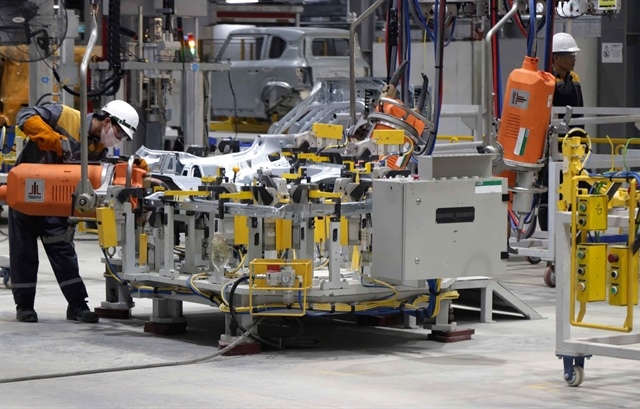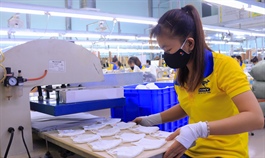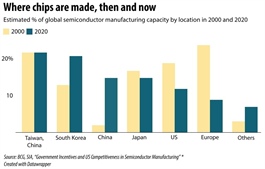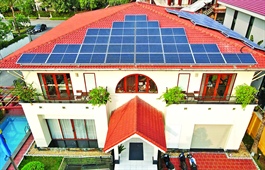Vietnam remains leading destination for Japanese investors
Vietnam remains leading destination for Japanese investors
The results of recent surveys conducted by the Japan External Trade Organization (JETRO) showed that Vietnam will remain among the top choices for Japanese investors in the post-Covid context.
Japanese firms expand operations
Hirai Shinji, Chief Representative of JETRO in Ho Chi Minh City, said that prior to the Covid-19 outbreak, Vietnam already was an attractive investment destination for Japanese companies. The latest JETRO survey showed that Vietnam moved ahead of Thailand to rank second only to China in terms of the most attractive destinations.
“In 2021 many Japanese manufacturing and service companies will come to Vietnam, while those operating in Vietnam will expand operations not only in Ho Chi Minh City and its environs but also other localities such as those in the Mekong Delta,” Hirai Shinji said.
In the past, Japanese companies chose Vietnam mostly as a manufacturing venue, but now Vietnam has become a booming market for Japanese products, too. In 2020, Vietnam ranked fifth among the top importers of Japanese agro-forestry-fishery products, with import value reaching JPY53.5 billion (US$510 million).
A growing number of Japanese companies want to sell their products in Vietnam, either directly or via online platforms. JETRO has operated the business-to-business online platform Japan Street since the beginning of this year, facilitating the distribution of Japanese products in Vietnam. More than 500 suppliers have registered to join, and the number of participants is expected to increase.
Vietnam has abundant human resources. The skills of Vietnamese workers are improving. Its favorable location facilitates transportation and trade with China as well as ASEAN countries. Stable power and water supply, a favorable working environment, and the transparency of government policies also help businesses manage their operations effectively.
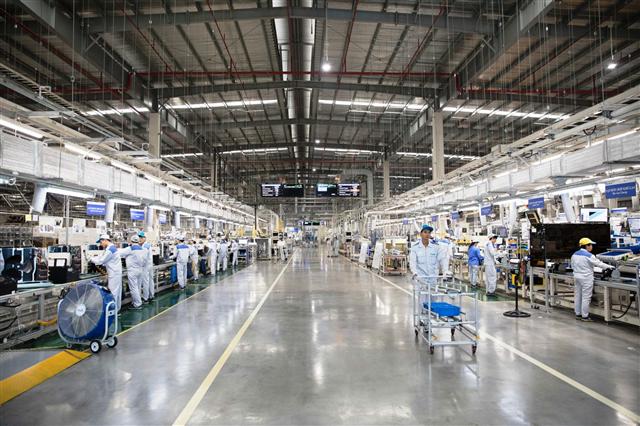
Many Japanese companies have successfully invested in Vietnam
|
Dealing with bottlenecks
However, JETRO survey results also point to dissatisfaction of some investors with the infrastructure in Vietnam, especially land transport and logistics. While the dissatisfaction rate of Japanese investors with China ranges from 2-5 percent, in Vietnam it reaches 20 percent and even tends to increase, as it does in Thailand.
Covid-19 has slowed foreign direct investment (FDI) flows to Vietnam and compelled foreign businesses, including Japanese companies, to focus on optimizing supply chains.
However, according to Okada Hideyuki, Chair of the Japanese Business Association in Ho Chi Minh City, while Vietnam’s support industries have improved, they remain incapable of providing Japanese manufacturers with sufficient parts and materials. Moreover, Japanese businesses also complain of lacking highly qualified human resources, as well as complex administrative procedures, especially tax and customs.
Nonetheless, for its achievements in curbing the spread of the pandemic, as well as in promoting economic recovery, Vietnam has become a top choice for Japanese companies and FDI flows are expected to increase in the near future.
The Japanese government has introduced support policies for businesses to relocate their manufacturing facilities and shift investments in order to cope with supply chain disruptions caused by the pandemic and global trade tensions. In the past several years, Japanese firms have diversified external supply chains accordingly to avoid risks from dependence on only one market. If Vietnam had more developed support industries, it could supply input materials for Japanese companies worldwide.
To attract more investors in the field of industry and high technology, Vietnam should further improve its human resources by building new vocational training facilities.
| By the end of March 2021, 33,294 FDI projects were ongoing in Vietnam with total registered capital of US$393.3 billion; their implemented capital reached an estimated US$236.96 billion, accounting for 60 percent of total registered capital. The Republic of Korea topped the list of foreign investors, with US$71.5 billion, accounting for 18.1 percent of the total. Japan ranked second with US$62.5 billion (15.9 percent), followed by Singapore, Chinese Taipei, and Hong Kong, China. |






